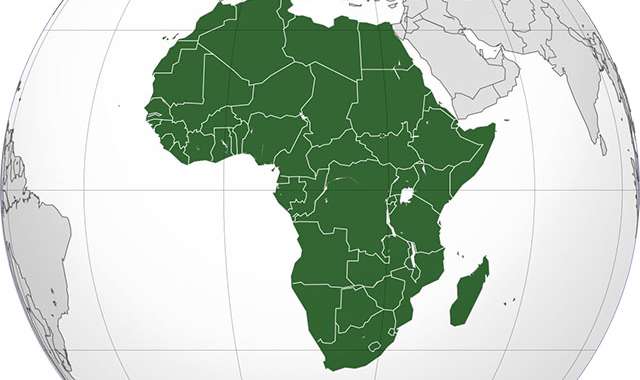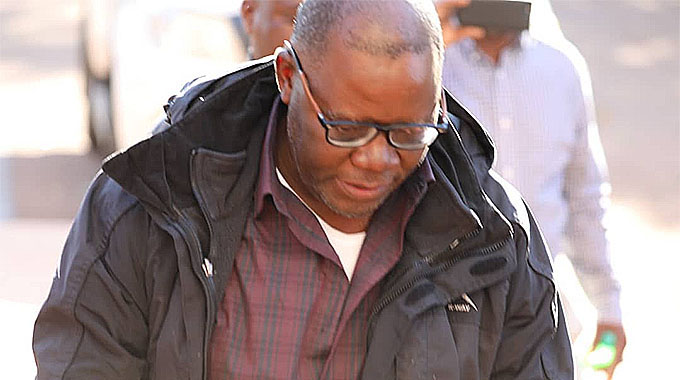Ending Africa’s digital exploitation

Jean-Philbert Nsengimana Correspondent
Did you know that when Africans make international calls amongst themselves, the traffic they generate usually has to transit through a hub that is located outside their continent?
Did you know that the cost of such communications is higher compared to what Europeans or Americans pay while transacting within their respective blocs despite having higher levels of income?
The economic value at stake is significant.
Smart Africa estimates that its 24-member countries lose about $3,5 billion annually just to the fraud or grey traffic linked to this inadequate set-up.
The situation brings to mind the well-known travel experience, whereby to fly from one African capital to another, sometimes in the same region, people needed to transit through a European airport unnecessarily paying more in the process to European airlines and hospitality institutions.
It is against this backdrop that on July 18, 2016, the One Africa Network (OAN) initiative was launched by Paul Kagame, President of Rwanda and his counterpart Gabon president Ali Bongo Ondimba.
The event took place during a Smart Africa board meeting that happened on the sidelines of the African Union Summit in Kigali.
While presiding at the launch, both leaders emphasised that the mission of the OAN is to make intra-African communications secure and affordable, in order to accelerate the socio-economic integration of the continent.
The milestone was a fulfilment of a promise made earlier when the OAN initiative received endorsement from the 24th Assembly of the African Union in January 2015 through a resolution.
Subsequently, Smart Africa initiated the design, development and deployment of the African Regional Exchange and Financial Settlement Platform that will work as a clearing house to keep and account for the continent’s traffic at home. The initiative has the following major objectives:
- Assert the sovereignty of African nations to oversee their own voice, data and financial transactions’ traffic and reclaim associated benefits
- Boost intra-African trade and the socio-economic transformation agenda
- Support African continental integration efforts, especially the free movement of people, goods and services across the continent
- Protect African borders from telecom fraud and grey traffic while tackling the associated economic and security threats that such traffic represent.
- Improve the quality of service and affordability of communications within Africa
The launch of the One Africa Network followed a successful proof of concept that was implemented in the four countries of East Africa Community’s Northern Corridor: Kenya, Rwanda, South Sudan, and Uganda. Within six months of the launch of the project, dubbed One Network Area, the traffic between countries had increased by 800 percent and the revenues realised by operators had increased, despite the price per minute of international calls having dropped. This means that the explanation for the high price paid by Africans when they communicate cannot be construed as a commercial imperative.
The explanation cannot also be technical since the bulk of communications infrastructure is now based on IP (internet protocol), therefore eliminating distance as a significant cost factor. What is clear, is that the persistence of high roaming and international calling fees is a form of digital exploitation that seeks to maximise providers’ interests and other motives through the old divide-and-rule technique.
The public needs to be advised that the traffic of voice and messages represent just the tip of the iceberg of the overall intra-African communications. The much larger part of this business is made of data (internet traffic) and financial flows exchange.
The One Africa Network initiative should therefore be understood as an effort by African leadership to keep Africa’s value within Africa as long as Africans are trading amongst themselves. It is not just a question of sovereignty. It is a question of Africa’s competitiveness and survival in the global digital economy.
Building a digital Continental Free Trade Area
When Smart Africa was founded in 2013, it was given the overall strategic mission of driving a single digital market on the continent. The signing of the AfCFTA (AfricaN Continental Free Trade Area) agreement in March 2018 in Kigali gave an additional impetus to Smart Africa’s mission.
While building cross-border roads, power lines and railway infrastructure to connect the continent and increase the trade of goods will take time and comes with a lot of capital investment requirements, there is nothing that prevents Africa from being digitally integrated today. The good news is that, globally, the value of digital flows across borders has surpassed the value of physical goods. This means that the major part of the promise of a Continental Free Trade Area can be realised today.
One Africa Network a collective responsibility
For Africa to realise the vision of a digital single market, governments, the private sector and consumers need to do their part. The signing of the Single African Air Transport Market, the Continental Free Trade Area and the Protocol on Free Movement of People, all within one year, has demonstrated unprecedented political will to unite the continent.
The impending launch of the Cape-to-Cairo and Djibouti–Lagos terrestrial fibre network by Liquid Telecom is a statement that the vision of a digitally connected Africa is achievable, driven by private sector investment. Consumers are waking up and increasingly demanding that their rights are upheld.
As it has been emphasised many times by the Smart Africa chairman, President Kagame, we are making progress, but we could be moving a lot faster. It takes more courage, coordination and a sustained sense of urgency to realise Africa’s full potential and end the digital exploitation.
Jean-Philbert Nsengimana is an advisor to Smart Africa and former Minister for ICT in Rwanda.









Comments